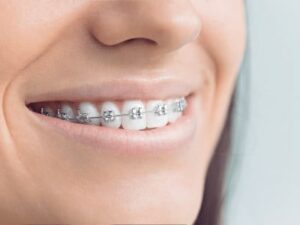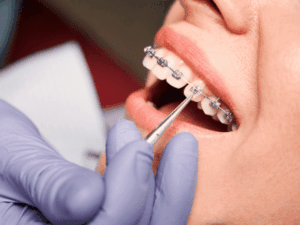
Why Straight Teeth Matter for Your Health
Did you know that straightening your teeth can also improve your overall health? At Greater Houston Orthodontics, we’ve seen firsthand how orthodontic treatment can enhance not only appearance but also well-being. In fact, crooked teeth and poor oral health are linked to serious conditions such as high blood pressure, strokes, and even heart disease. By correcting misaligned teeth,

What Is An Orthodontist?
It’s a common misconception that dentists and orthodontists perform the same functions. While both professions share certain similarities and often collaborate, orthodontics is a specialized branch of dentistry focused specifically on correcting dental misalignments. What Does an Orthodontist Do? Orthodontists, like Dr. Amir Davoody, Dr. Rana Mehr, and Dr. Panagiotis Kyteas at Greater Houston Orthodontics, are dentists

Boost Your Oral Health with These Essential Nutrients
We often hear about the importance of vitamins and minerals for our overall health, but did you know they’re also critical for maintaining a healthy mouth? Ensuring you get enough of the right nutrients can make a significant difference in keeping your teeth and gums in top shape. Here’s a breakdown of the vitamins and minerals you need

Items You Should Have at Home in Case of an Orthodontic Emergency
Our teeth do so much for us on a daily basis. While most of the time they are strong and reliable, accidents do happen from time to time. When emergencies do happen, it is crucial that you have some important items on hand so that you can handle them to the best of your ability. Keep reading for

What Braces Feel Like in the First Few Days
Getting metal braces is a big step toward a straighter, more beautiful smile! However, the first few days can feel quite different as your mouth adjusts to this new change. You’ll likely experience a mix of excitement, curiosity, and a little discomfort. Rest assured, these feelings are perfectly normal and temporary. In this blog, Dr. Amir Davoody, Dr.
Ready for Braces? Here’s What Happens at Every Stage of Treatment
Braces are a trusted and effective solution for achieving a straighter smile, but many people delay treatment simply because they are unsure of what to expect. Dr. Amir Davoody, Dr. Rana Mehr, and Dr. Panagiotis Kyteas at Greater Houston Orthodontics walks you through the step-by-step process so you can feel confident in making the right decision for your
